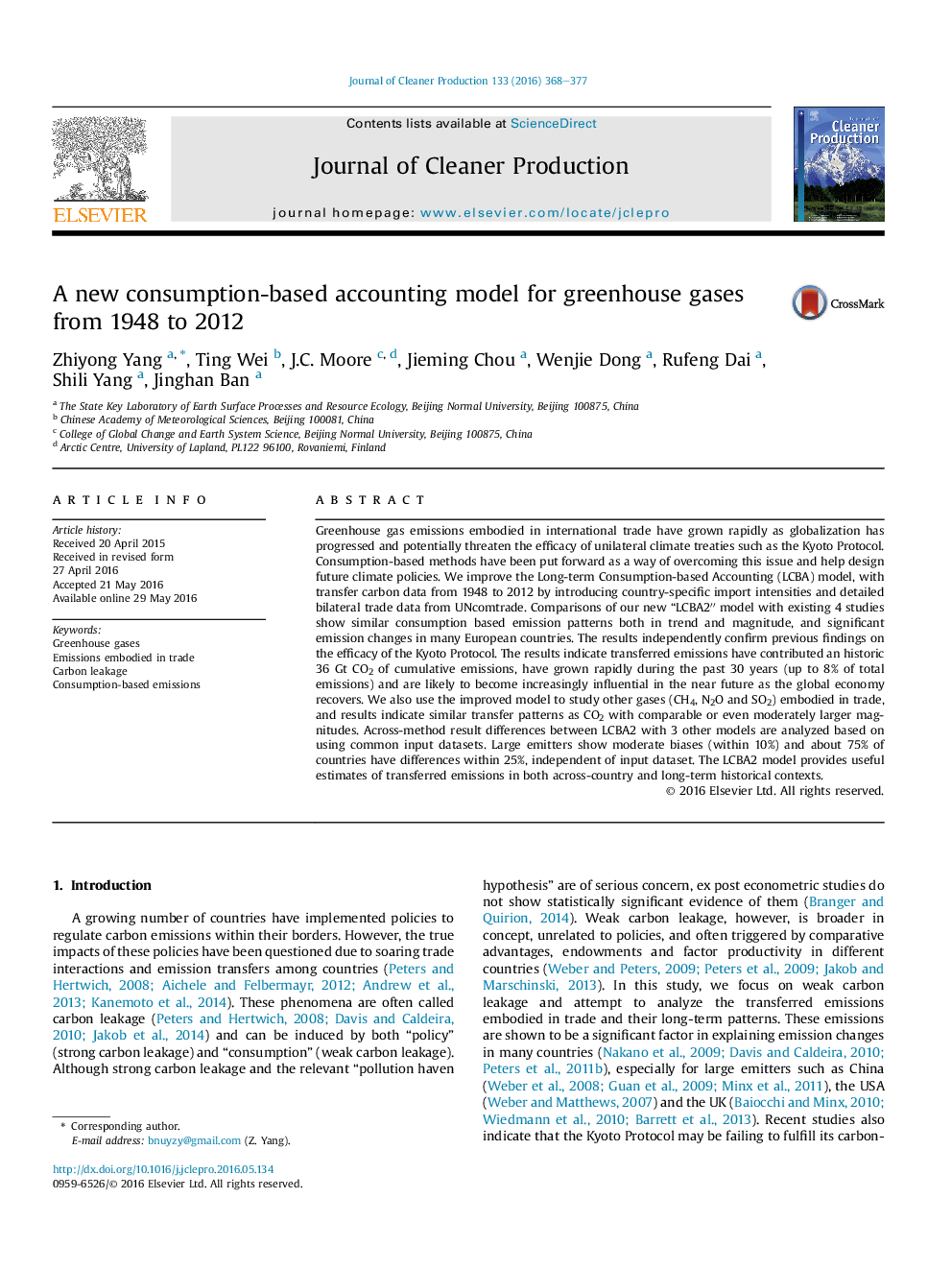| Article ID | Journal | Published Year | Pages | File Type |
|---|---|---|---|---|
| 8101539 | Journal of Cleaner Production | 2016 | 10 Pages |
Abstract
Greenhouse gas emissions embodied in international trade have grown rapidly as globalization has progressed and potentially threaten the efficacy of unilateral climate treaties such as the Kyoto Protocol. Consumption-based methods have been put forward as a way of overcoming this issue and help design future climate policies. We improve the Long-term Consumption-based Accounting (LCBA) model, with transfer carbon data from 1948 to 2012 by introducing country-specific import intensities and detailed bilateral trade data from UNcomtrade. Comparisons of our new “LCBA2â³ model with existing 4 studies show similar consumption based emission patterns both in trend and magnitude, and significant emission changes in many European countries. The results independently confirm previous findings on the efficacy of the Kyoto Protocol. The results indicate transferred emissions have contributed an historic 36Â Gt CO2 of cumulative emissions, have grown rapidly during the past 30 years (up to 8% of total emissions) and are likely to become increasingly influential in the near future as the global economy recovers. We also use the improved model to study other gases (CH4, N2O and SO2) embodied in trade, and results indicate similar transfer patterns as CO2 with comparable or even moderately larger magnitudes. Across-method result differences between LCBA2 with 3 other models are analyzed based on using common input datasets. Large emitters show moderate biases (within 10%) and about 75% of countries have differences within 25%, independent of input dataset. The LCBA2 model provides useful estimates of transferred emissions in both across-country and long-term historical contexts.
Related Topics
Physical Sciences and Engineering
Energy
Renewable Energy, Sustainability and the Environment
Authors
Zhiyong Yang, Ting Wei, J.C. Moore, Jieming Chou, Wenjie Dong, Rufeng Dai, Shili Yang, Jinghan Ban,
